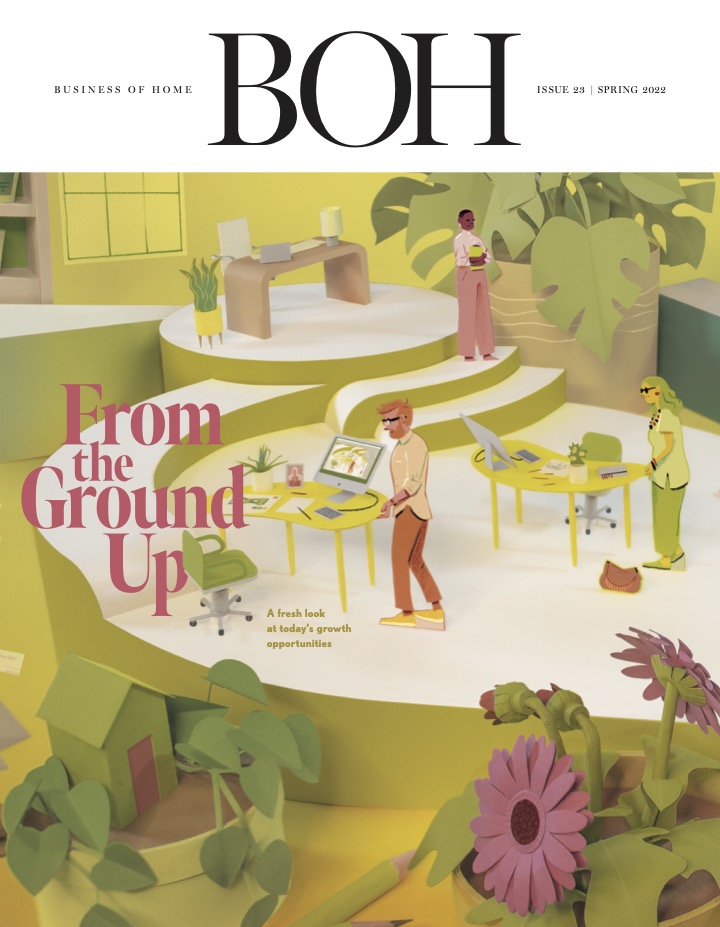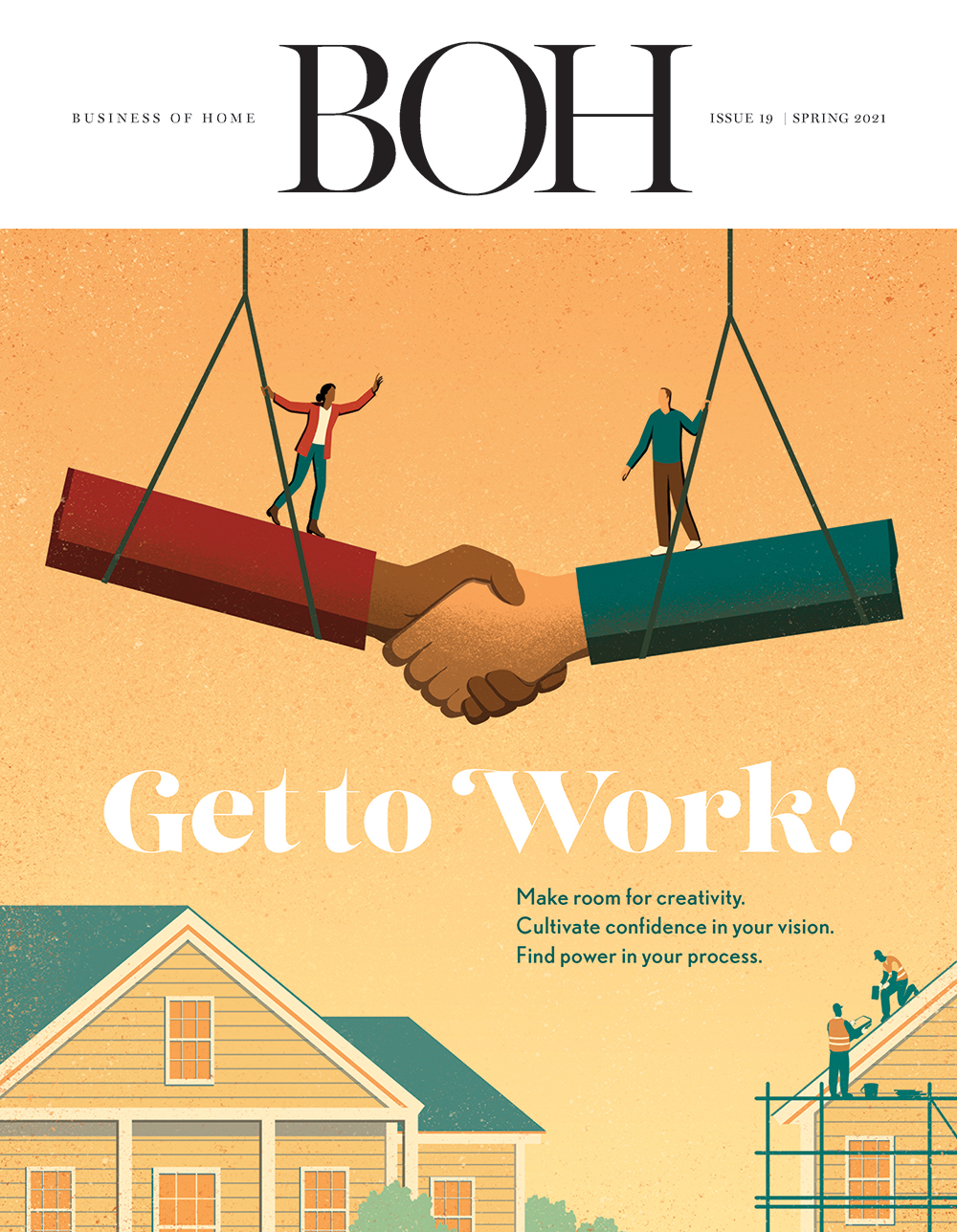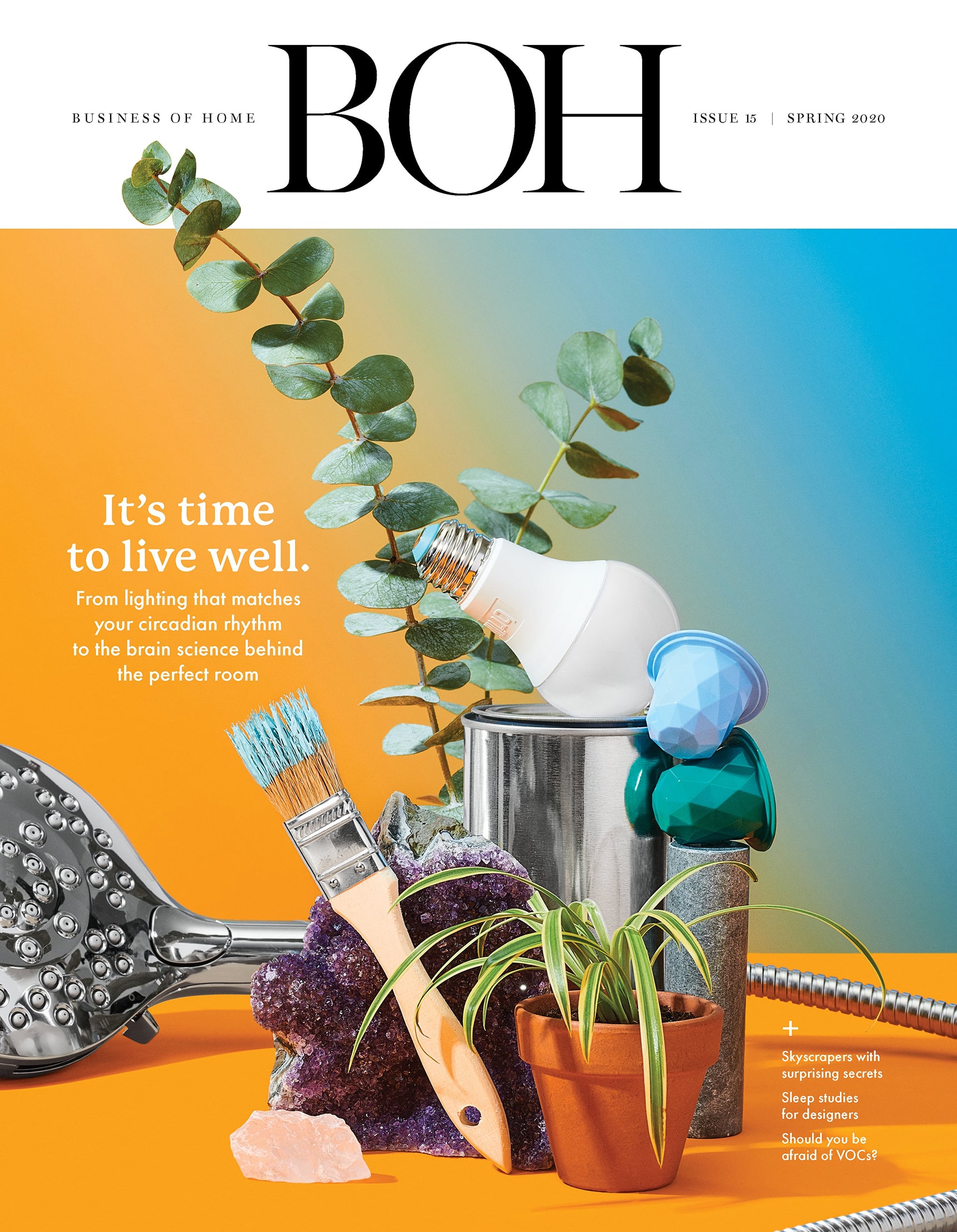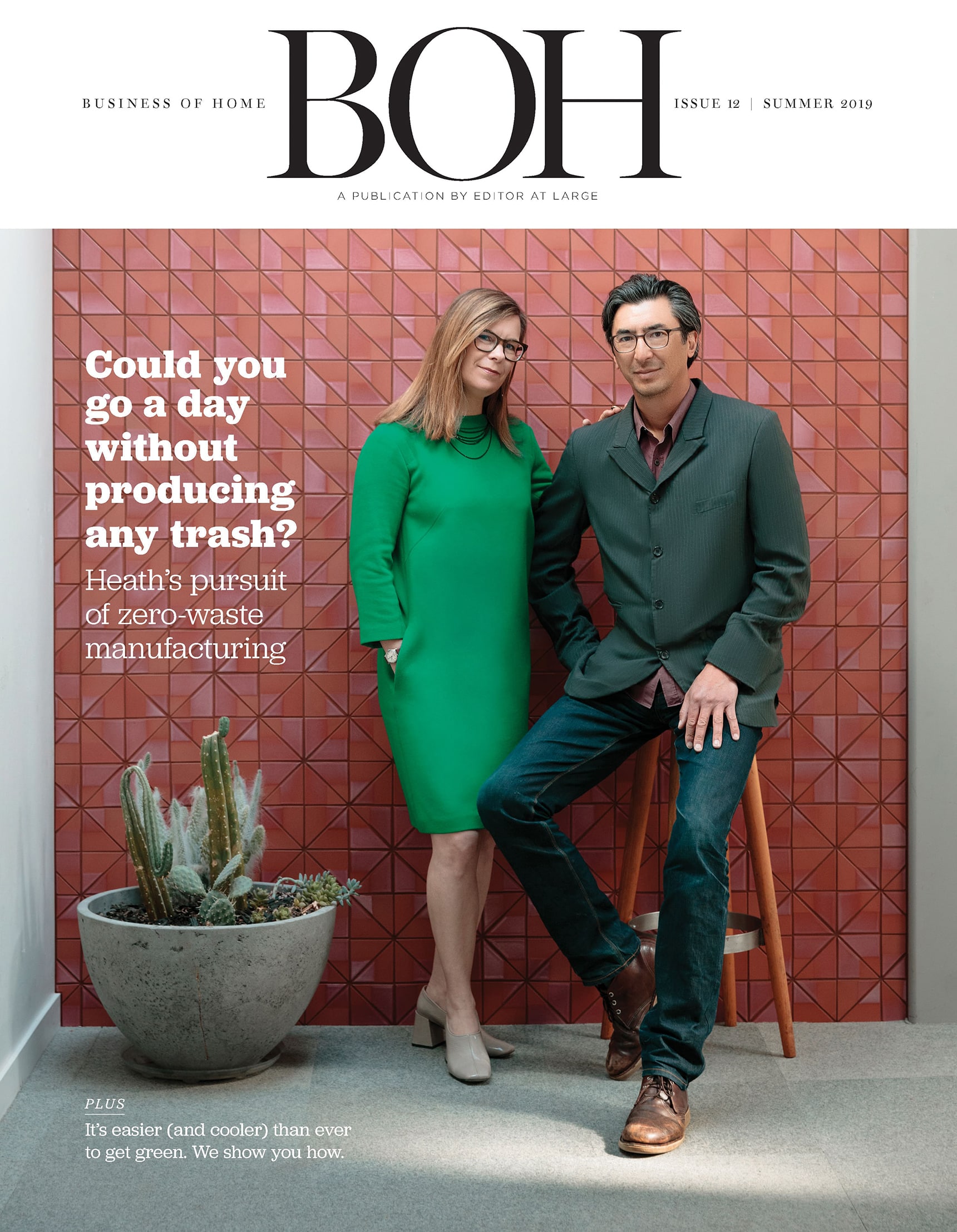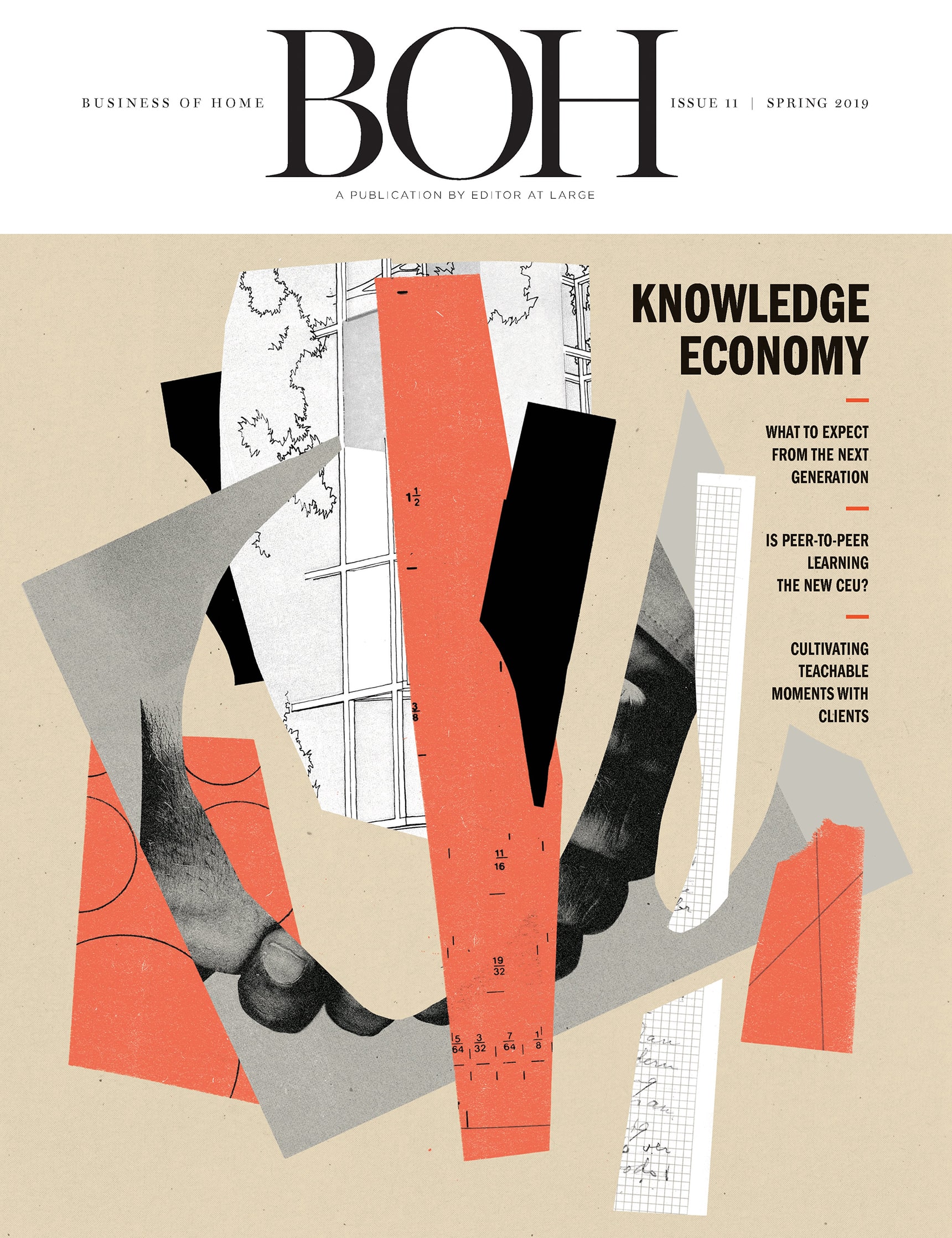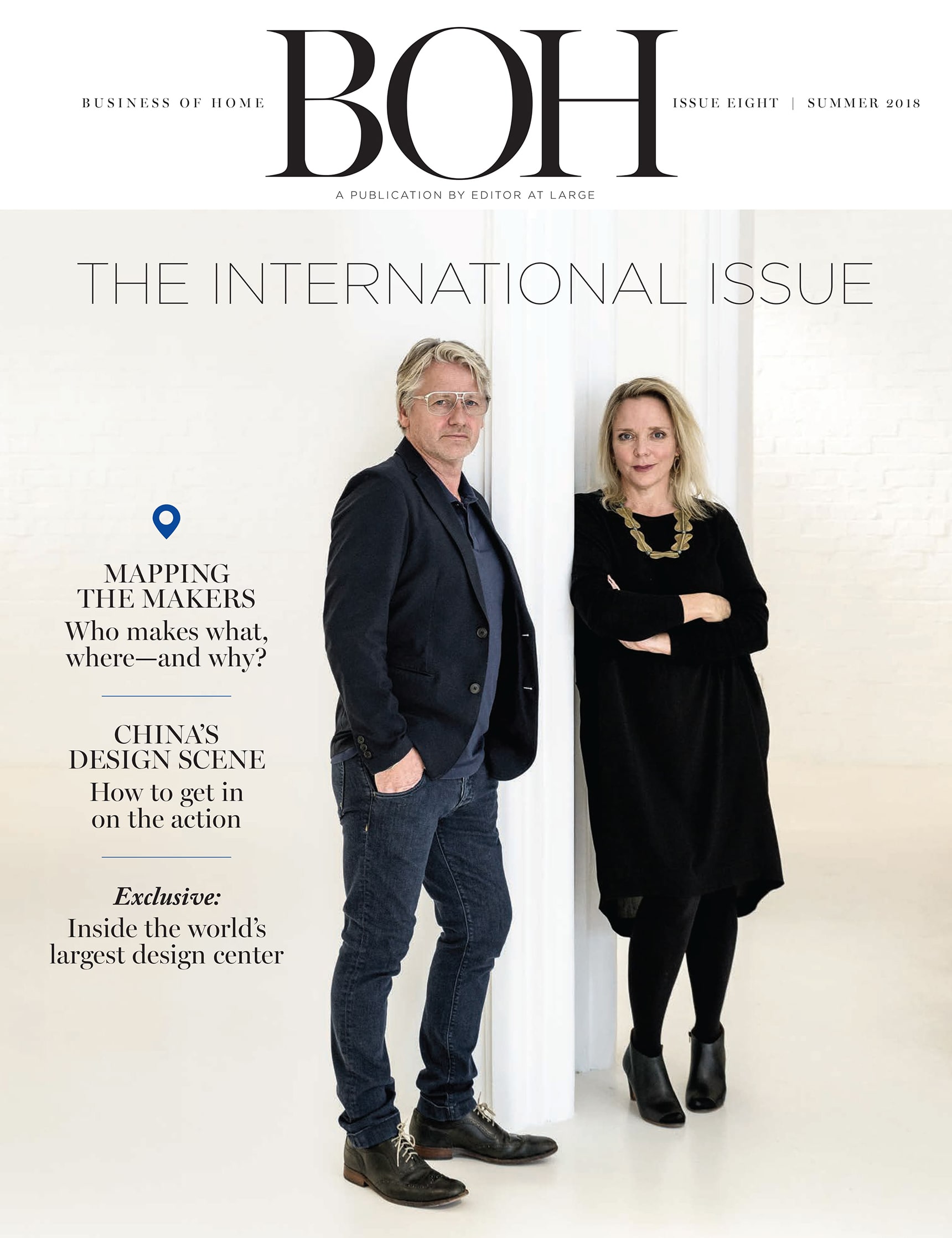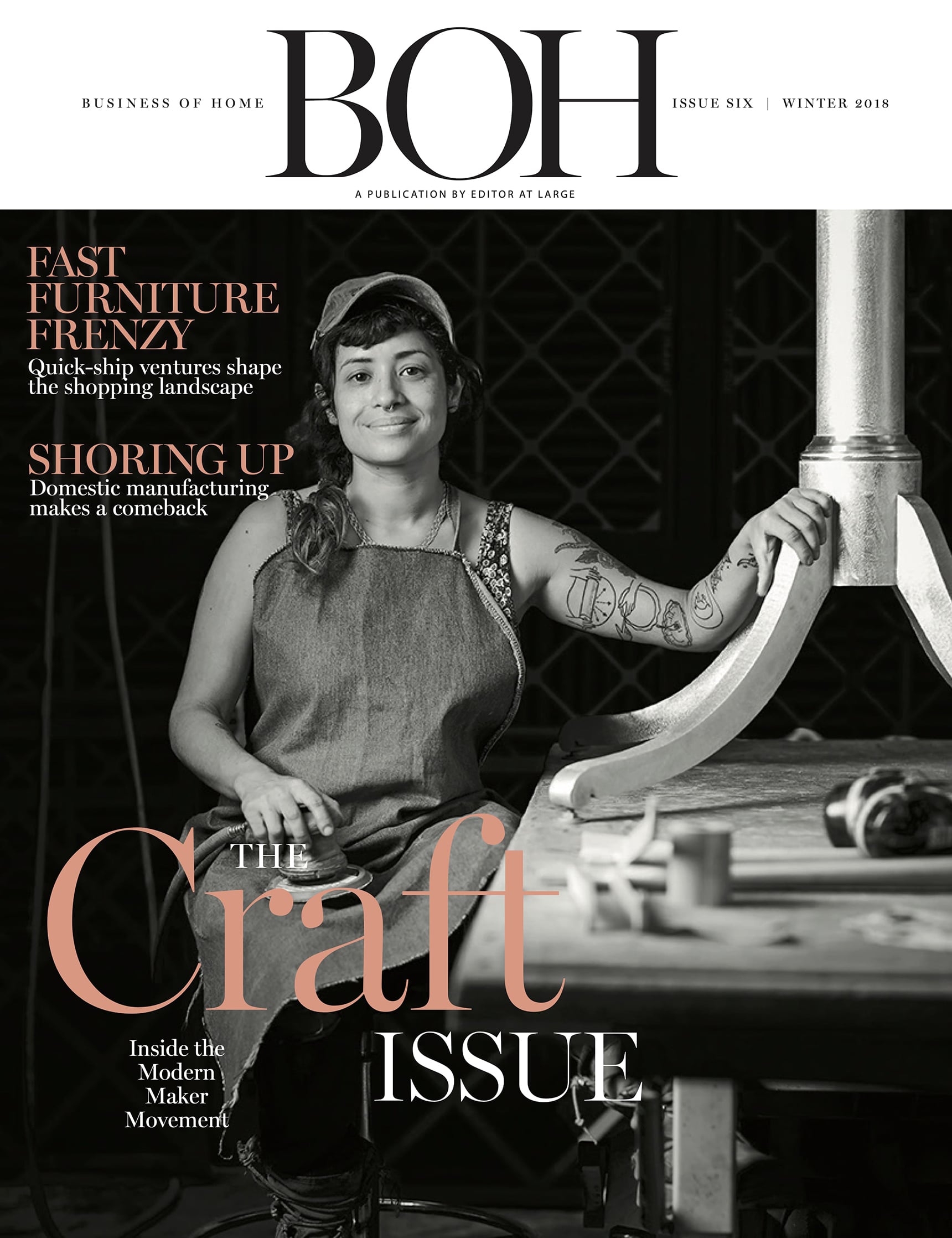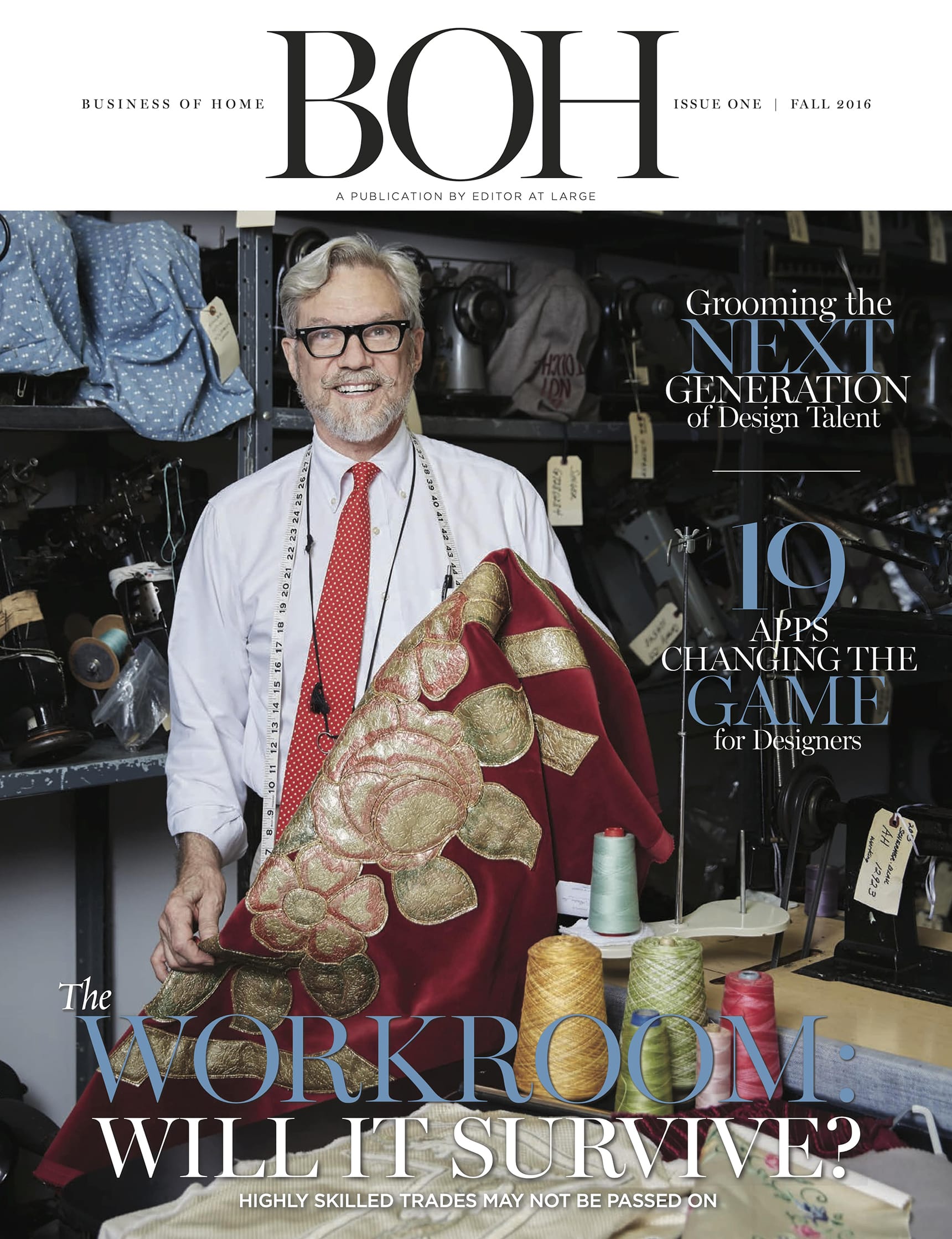Conservation and community are key for three design entrepreneurs abroad.
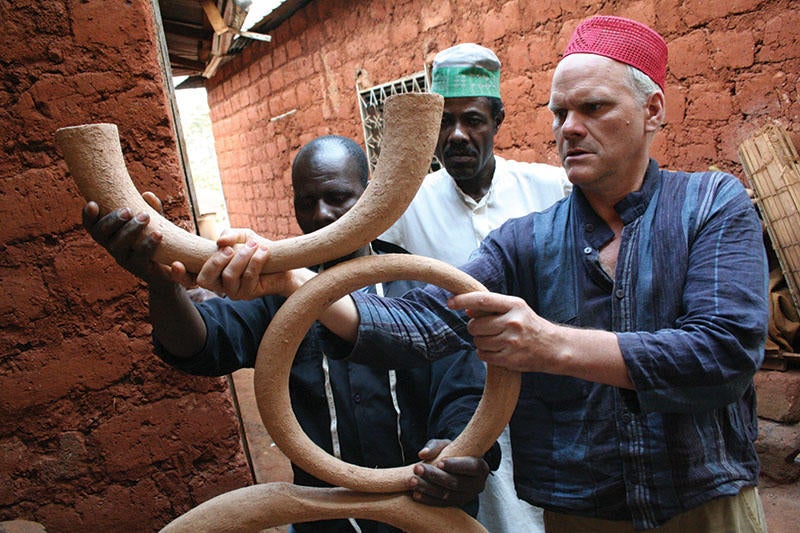
Tucker Robbins just touched down from a trip to Cameroon. Stephanie Odegard has officially moved to India. And, when we last caught up with her, Christina Bryant was mid-flight over the Pacific. These global citizens aren’t just building sustainable businesses, they’re nurturing and preserving artisan communities in all corners of the world. The product differs—Robbins is best known for furniture and accents, Odegard’s name is synonymous with carpets, and upstart Bryant’s bag is textiles—but each one’s motivation is similar: to support artisan communities.
Robbins’s upcycled product reflects the indigenous materials of each region he visits—a collection made of wire from resource-poor Honduras, where he collaborates with metalworkers via nonprofit Aid to Artisans; lattice side tables, hand-carved from trees that provide shade for coffee bushes by the royal family of the Bamun tribe in Cameroon; and pieces made of Peruvian porcelain sourced from a workshop that a family member helped found. “People would much prefer to design and trade than to get their guns out,” he says of the sometimes conflict-ravaged countries he visits to work with artisans. Robbins seeks out regions equipped with “integrated systems that my work can enhance,” such as farming communities and coffee-industry regions, where he has ongoing partnerships dating back to 1986. “What makes these countries great is the people on the ground and the connections you have,” he explains. “I’ve worked with families for several generations now. It’s a commitment. I could certainly do it cheaper in China, but it’s not the same—it’s about the uniqueness of our planet and how the people interact with it.”

BOH subscribers and BOH Insiders.















